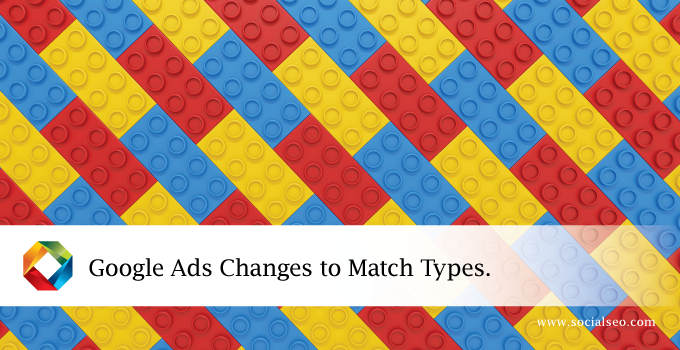If you have a website, whether it’s for informing potential clients and consumers about your…

Google Ads Makes Changes to Exact Match Types
Google Ads is an effective marketing approach for businesses looking to expand their local and national reach. This platform works by allowing businesses to select a goal that they would like to reach through the assistance of Google Ads. This could mean more clicks to their website, more calls, or more local visits. You provide a list of keywords you would like Google to use to direct searchers to your business and you only pay when a user completes your desired action.
There are several types of keyword matching options Google uses to prompt your business’ ad. The types are broad match, broad match modifier, phrase match, and exact match.
Recently, Google Ads made changes to their Exact Match search. Before, when you said you wanted Exact Match keywords, Google would return matches that were an exact match or what is known as a close variant, i.e. misspellings, acronyms, plural variations, etc. Now, Google will also return what it interprets as an exact match to the searcher’s intent.

What does this mean for SEM?
Essentially, what these changes mean is less control. While the goal is to return more matches, these so-called matches might not be 100% relevant. For example, let’s say you run a website that sells bathing suits. You choose the exact match keywords “bathing suits.” With the new changes, Google may interpret swimming as a synonym for bathing. So when someone searches for swimming suits, your ad pops up – not good. While this may seem like a positive thing in some cases, it expands targeting and removes a level of specificity we had before. This can make your ad testing and bidding completely inaccurate.
How do we combat this issue?
The recent Google Ads changes to match types present a few challenges to digital marketers. We can combat these issues by implementing a strong negative keyword strategy and using focused location targeting and remarketing lists for search ads. A negative keyword list is crucial to making sure your ads are only displayed for relevant searches. Negative keywords are a great way to have more control over when your ads appear by telling Google which words you do not want associated with your ads.
Confused? We’re here to help
It can be hard to keep up with all the changes that Google makes. If you don’t know what changes you need to make, or just don’t have the time, we’re here to help. At SocialSEO, it’s our job to keep up to date with the latest changes and find the best way to make them work for you. For help with your SEO, social media, and video service needs, contact SocialSEO for a free quote today.



